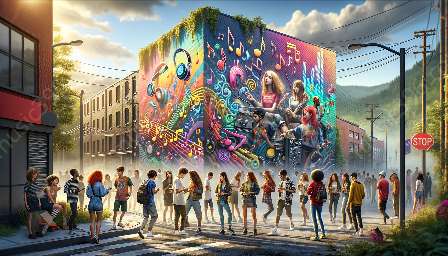Music has always been a reflection of society, and pop music is no exception. In this cluster, we will explore the influence of cultural diversity and representation in pop music, and its impact on society. From the evolution of pop music to the empowerment of diverse voices, we'll delve into how pop music shapes cultural narratives and inspires change.
The Evolution of Pop Music and Cultural Diversity
Pop music has evolved over the years, reflecting the cultural diversity of the societies in which it originates. From the fusion of different musical styles to the incorporation of diverse languages and sounds, pop music has become a melting pot of cultural influences. The rise of global collaborations and cross-cultural exchanges has further enriched the diversity of pop music, bringing new perspectives and voices to the forefront.
Shaping Cultural Narratives
Pop music has played a significant role in shaping cultural narratives by giving voice to underrepresented communities. Artists from diverse backgrounds have used their platforms to address social and cultural issues, bringing attention to the experiences of marginalized groups. Through powerful lyrics and compelling music videos, pop music has become a catalyst for challenging stereotypes and promoting inclusivity.
Empowering Diverse Voices in the Industry
With the growing emphasis on diversity and representation in the music industry, pop music has become a platform for empowering diverse voices. Artists from various cultural backgrounds are gaining visibility and recognition, contributing to a more inclusive and representative music landscape. The celebration of authenticity and individuality in pop music has opened doors for artists to share their unique stories and perspectives, creating a rich tapestry of musical expression.
The Influence of Pop Music on Society
Pop music has a profound influence on society, shaping attitudes, beliefs, and behaviors. Through its representation of diverse cultures and experiences, pop music has the power to bridge divides and foster understanding. It serves as a medium for cultural exchange, allowing listeners to connect with different worldviews and embrace diversity. Additionally, pop music has the potential to spark conversations about social issues, promote empathy, and inspire positive change.
Conclusion
In conclusion, cultural diversity and representation in pop music are integral to the evolution of the genre and its impact on society. As pop music continues to embrace diverse voices and narratives, it serves as a catalyst for change, empowering artists and listeners alike. By celebrating cultural diversity and addressing societal issues, pop music has the potential to shape a more inclusive and empathetic world.























